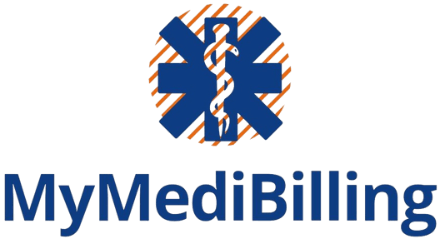Introduction
Claim denial management is a vital process in the healthcare industry, as it entails the review and resolution of denied claims from insurance companies. When a claim is denied, it can lead to delayed payments, increased administrative costs, and potential revenue loss for healthcare providers. Therefore, effective denial management is crucial for maintaining the financial stability of healthcare organizations.
Traditionally, claims denial management has been a labor-intensive and time-consuming process, requiring substantial resources and expertise to identify and resolve denied claims. However, with the advancement of technology, there has been a significant shift in how denial management is approached and executed. The impact of technology on claims denial management has been profound, transforming the way healthcare organizations handle denied claims.
Automation and artificial intelligence have streamlined the process, making it more efficient and accurate. Data analytics and predictive modeling have provided valuable insights into claim denials, enabling healthcare providers to proactively address issues and prevent future denials. As a result, technology has not only improved the efficiency of denial management but has also helped healthcare organizations recover revenue that would have otherwise been lost.
However, while technology has brought about significant improvements in denial management, it has also presented challenges and opportunities for healthcare organizations.
Key Takeaways
- Technology is revolutionizing claims denial management by improving efficiency and accuracy.
- Automation and artificial intelligence are playing a key role in streamlining the claims denial process.
- Data analytics and predictive modeling are helping to identify trends and patterns in claims denials.
- Implementing technology in claims denial management presents both challenges and opportunities.
- The future of claims denial management is increasingly tech-driven, with continued advancements in technology shaping the industry.
The Impact of Technology on Claims Denial Management
Automation and Efficiency
The impact of technology on claims denial management cannot be overstated. Automation and artificial intelligence have transformed the way healthcare organizations handle denied claims, making the process more efficient and accurate. With the use of advanced software and algorithms, healthcare providers can now automate the identification and resolution of denied claims, reducing the need for manual intervention and freeing up resources to focus on more complex tasks.
Data-Driven Insights
Additionally, artificial intelligence has enabled healthcare organizations to analyze large volumes of data to identify patterns and trends in claim denials, allowing them to develop targeted strategies for prevention and resolution. Furthermore, data analytics and predictive modeling have provided valuable insights into claim denials, enabling healthcare providers to proactively address issues and prevent future denials. By leveraging historical data and predictive algorithms, healthcare organizations can identify potential denial trends and take proactive measures to prevent them from occurring.
Improved Revenue Cycle Management
This proactive approach not only reduces the number of denied claims but also improves the overall revenue cycle management for healthcare providers. As a result, technology has not only improved the efficiency of denial management but has also helped healthcare organizations recover revenue that would have otherwise been lost.
Automation and Artificial Intelligence in Claims Denial Management
Automation and artificial intelligence have played a significant role in transforming claims denial management. With the use of advanced software and algorithms, healthcare providers can now automate the identification and resolution of denied claims, reducing the need for manual intervention and freeing up resources to focus on more complex tasks. This automation has not only improved the efficiency of denial management but has also reduced administrative costs for healthcare organizations.
Additionally, artificial intelligence has enabled healthcare organizations to analyze large volumes of data to identify patterns and trends in claim denials, allowing them to develop targeted strategies for prevention and resolution. Artificial intelligence has also empowered healthcare organizations to develop more accurate and effective denial management strategies. By leveraging machine learning algorithms, healthcare providers can analyze historical data to identify patterns and trends in claim denials, enabling them to develop targeted strategies for prevention and resolution.
This proactive approach not only reduces the number of denied claims but also improves the overall revenue cycle management for healthcare providers. Furthermore, artificial intelligence has enabled healthcare organizations to automate the identification of potential denial trends, allowing them to take proactive measures to prevent them from occurring. As a result, automation and artificial intelligence have not only improved the efficiency of denial management but have also helped healthcare organizations recover revenue that would have otherwise been lost.
Data Analytics and Predictive Modeling in Claims Denial Management
| Technology | Impact on Claims Denial Management |
|---|---|
| Artificial Intelligence | Improves accuracy in identifying denial patterns and predicting potential denials. |
| Data Analytics | Helps in analyzing large volumes of claims data to identify trends and root causes of denials. |
| Automation | Streamlines denial management processes, reducing manual efforts and improving efficiency. |
| Electronic Health Records | Provides access to comprehensive patient information, aiding in better documentation and reducing denials. |
| Blockchain | Enhances security and transparency in claims processing, reducing fraudulent denials. |
Data analytics and predictive modeling have revolutionized the way healthcare organizations approach claims denial management. By leveraging historical data and predictive algorithms, healthcare providers can identify potential denial trends and take proactive measures to prevent them from occurring. This proactive approach not only reduces the number of denied claims but also improves the overall revenue cycle management for healthcare providers.
Additionally, data analytics has provided valuable insights into claim denials, enabling healthcare organizations to proactively address issues and prevent future denials. Predictive modeling has also empowered healthcare organizations to develop more accurate and effective denial management strategies. By analyzing historical data and developing predictive algorithms, healthcare providers can identify potential denial trends and take proactive measures to prevent them from occurring.
This proactive approach not only reduces the number of denied claims but also improves the overall revenue cycle management for healthcare providers. Furthermore, predictive modeling has enabled healthcare organizations to automate the identification of potential denial trends, allowing them to take proactive measures to prevent them from occurring. As a result, data analytics and predictive modeling have not only improved the efficiency of denial management but have also helped healthcare organizations recover revenue that would have otherwise been lost.
Improving Efficiency and Accuracy with Technology

The advancements in technology have significantly improved the efficiency and accuracy of claims denial management for healthcare organizations. Automation and artificial intelligence have streamlined the process, making it more efficient by reducing the need for manual intervention and freeing up resources to focus on more complex tasks. This automation has not only improved the efficiency of denial management but has also reduced administrative costs for healthcare organizations.
Additionally, artificial intelligence has enabled healthcare organizations to develop more accurate and effective denial management strategies by analyzing historical data to identify patterns and trends in claim denials. Furthermore, data analytics and predictive modeling have provided valuable insights into claim denials, enabling healthcare providers to proactively address issues and prevent future denials. By leveraging historical data and predictive algorithms, healthcare organizations can identify potential denial trends and take proactive measures to prevent them from occurring.
This proactive approach not only reduces the number of denied claims but also improves the overall revenue cycle management for healthcare providers. As a result, technology has not only improved the efficiency of denial management but has also helped healthcare organizations recover revenue that would have otherwise been lost.
Challenges and Opportunities in Implementing Technology in Claims Denial Management
While technology has brought about significant improvements in denial management, it has also presented challenges and opportunities for healthcare organizations. One of the main challenges is the initial investment required to implement advanced technology solutions for denial management. Healthcare organizations must invest in software, hardware, and training to effectively leverage automation, artificial intelligence, data analytics, and predictive modeling for denial management.
Additionally, there may be resistance from staff who are accustomed to traditional manual processes, requiring change management efforts to successfully implement new technology solutions. However, there are also significant opportunities for healthcare organizations to implement technology for denial management. By leveraging advanced technology solutions, healthcare providers can improve their revenue cycle management by reducing the number of denied claims and recovering revenue that would have otherwise been lost.
Additionally, technology can help healthcare organizations identify potential denial trends and take proactive measures to prevent them from occurring, ultimately improving their financial health.
The Future of Claims Denial Management in a Tech-Driven World
The future of claims denial management is undoubtedly tech-driven, with continued advancements in automation, artificial intelligence, data analytics, and predictive modeling shaping the way healthcare organizations handle denied claims. As technology continues to evolve, we can expect further improvements in efficiency and accuracy in denial management processes. Healthcare providers will be able to leverage advanced technology solutions to automate the identification and resolution of denied claims, reducing administrative costs and improving their revenue cycle management.
Furthermore, as technology continues to advance, we can expect more sophisticated predictive modeling algorithms that will enable healthcare organizations to proactively address potential denial trends before they occur. This proactive approach will not only reduce the number of denied claims but will also improve the overall financial health of healthcare providers.
Conclusion
Technology is revolutionizing claims denial management by streamlining the process and enhancing accuracy. Automated systems enable healthcare organizations to quickly identify and rectify errors, reducing the likelihood of denials. Advanced analytics provide valuable insights into denial patterns, allowing for proactive measures to prevent future issues. Ultimately, these technological advancements lead to improved revenue cycles and better patient care outcomes.

